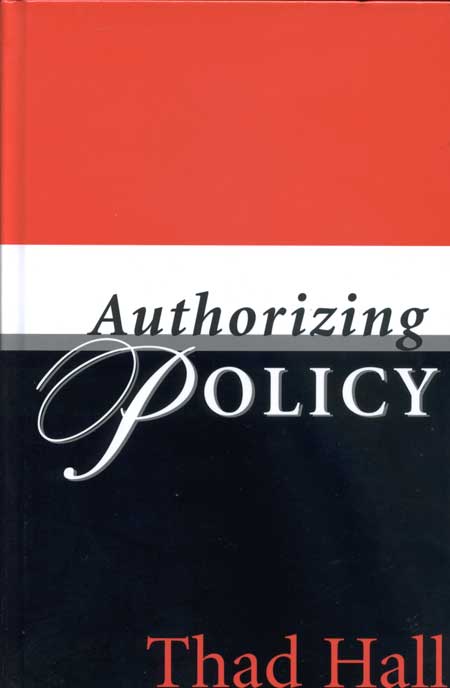Authorizing PolicyThad HallParliaments and Legislatures |
 10/14/2004 147 pp. 6x9  $26.95 paper 978-0-8142-5321-2 Add paper to shopping cart Shopping Cart Instructions Review/Change Shopping Cart & Check-out | |||
|
“Authorizing Policy is an excellent contribution to our understanding of budgeting, legislative behavior, and national policymaking. Thad Hall combines the experience of a congressional insider with a scholarly appreciation of the congressional and public policy literatures. This work fills a real gap in the literature, and for those who commonly ignore the congressional authorization process, it provides both rich description and rigorous analysis of how consequential it can be.” —Perspectives on Politics “Hall's book has rich description and analysis about an important aspect of public policy. There is no existing book—or even a good article—that discusses why legislators might strategically vary the timing of reauthorizations. His conclusions are of great relevance to the research agendas in the Congress subfield.” —David King, Kennedy School of Government, Harvard University “This is the definitive book on Congressional reauthorizations of laws, a topic that has important implications for national public policy processes. By admirably examining complex theories from two fields, Authorizing Policy advances into a new arena of congressional research: the union of theories of policy process with those of legislative behavior.” —Bryon Jones, University of Washington Studies of federal policy agendas seeking to explain why laws pass and why policies change typically look to the political environment, focusing on the media, congressional hearings, presidential addresses, and preferences of legislators as agents of change. However, since World War II, Congress has used simple procedure—short-term authorizations—to control the timing of policy change across the spectrum of federal policy. This book examines how short-term authorizations create periods of policy stability, when implementation can occur, by allowing policies to be reconsidered only when an authorization expires. This simple procedural mechanism allows Congress to state when certain aspects of a law—such as authorizations of appropriations—will expire. By doing this, Congress creates a schedule for when a given policy will be considered and systematically steers the management of public programs by changing the resources and tools available to policy implementers. Understanding short-term authorizations may force a reexamination of existing theories of the policy process and congressional activity. Reauthorization politics may well shape member activities (e.g., the timing of bill introductions) as well as interest group activities (e.g., the timing of coalition formation). Reauthorizations also affect the behavior of agencies, which must be responsive to these legislative changes. Thad Hall is assistant professor of political science, University of Utah. | ||||

